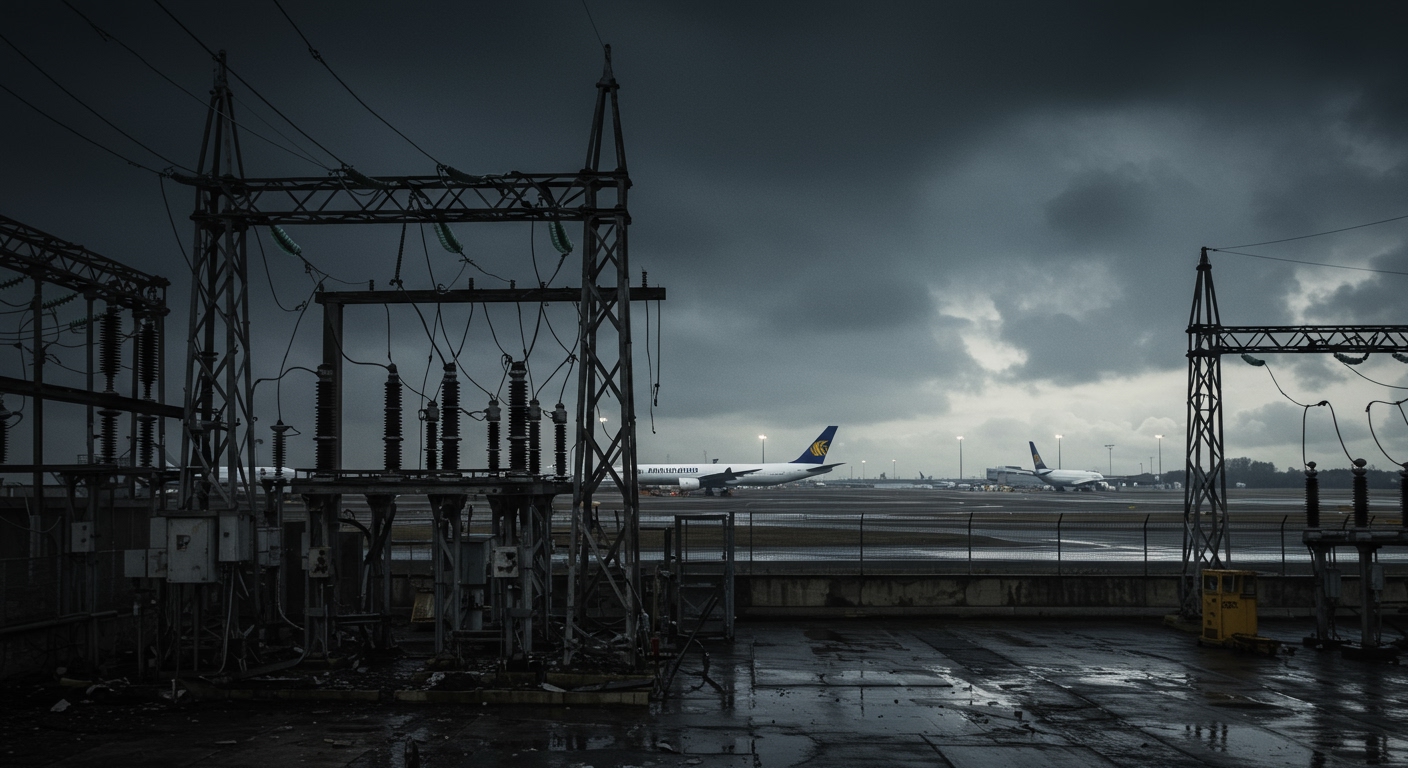London, UK – A critical fire at an electrical substation in March, which crippled operations at London’s Heathrow Airport and led to widespread travel disruption, has been definitively traced to a long-standing issue involving moisture and deferred maintenance, according to a new report.
The findings, published on Wednesday, July 2, 2025, by the National Energy System Operator (NESO), highlight a significant lapse in infrastructure upkeep. The report concludes that the blaze at the North Hyde substation was likely triggered by moisture ingress into electrical components. Crucially, this vulnerability was first identified over six years ago, in July 2018, but necessary maintenance was repeatedly postponed by National Grid, the operator and owner of the substation.
Investigation Uncovers Systemic Failure
The NESO report paints a picture of an identified problem that was allowed to fester, ultimately culminating in a major infrastructure failure. While the original headline referenced the fire being traced to an “unrepaired transformer,” the NESO findings detail the broader issue of moisture affecting “electrical components” within the substation, implying a more pervasive vulnerability that maintenance deferrals failed to address. The report does not provide explicit details on which specific components were affected, beyond noting the presence of moisture.
National Grid’s decision to repeatedly defer the necessary repairs since the issue was first flagged in July 2018 stands as a central point of criticism in the NESO document. Industry experts suggest that electrical systems are particularly susceptible to moisture, which can cause short circuits, corrosion, and ultimately, fires, if not properly mitigated and maintained.
Widespread Disruption at Heathrow
The fire at the North Hyde substation had immediate and severe consequences, primarily manifesting as a major power cut affecting a significant area, including critical infrastructure. London’s Heathrow Airport, one of the world’s busiest international air hubs, was directly impacted by the outage. The sudden loss of power brought airport operations to a near standstill, leading to the cancellation of thousands of flights. This resulted in widespread chaos and left countless passengers stranded at terminals or facing significant delays across global networks.
The scale of the disruption underscored the critical interdependencies between energy infrastructure and vital transportation links. The incident served as a stark reminder of the potential cascading effects that failures in one sector can have on others, particularly in densely populated and interconnected regions like the London metropolitan area.
Regulatory and Government Response
In the wake of the NESO report’s release, the energy watchdog Offgem has announced it has launched an investigation into the incident. Offgem’s inquiry is expected to delve deeper into National Grid’s maintenance protocols, decision-making processes regarding the deferred repairs, and overall compliance with regulatory standards for grid reliability and safety.
The findings have also drawn sharp condemnation from government officials. Energy secretary Ed Miliband publicly addressed the report on Wednesday, July 2, 2025, describing its conclusions as “deeply concerning.” Mr. Miliband’s statement signals potential political pressure on National Grid and the wider energy sector to review and enhance maintenance and resilience strategies for critical infrastructure.
Implications for National Energy Security
The incident and the subsequent NESO report raise broader questions about the resilience and security of the national energy infrastructure. The fact that a known issue, identified years earlier, could lead to such a significant disruption highlights potential vulnerabilities in maintenance scheduling and oversight within critical energy assets.
The Offgem investigation will be closely watched by industry stakeholders, policymakers, and the public. Its findings and any subsequent enforcement actions or recommendations could have significant implications for how utilities manage their assets and how regulators ensure the stability and reliability of the energy supply network that underpins essential services, including international transport hubs like Heathrow.
While the NESO report focuses on the technical cause and history of the fault, the full cost of the disruption – both economic due to travel and business impacts, and reputational for the affected companies and agencies – is still being assessed. The incident at the North Hyde substation serves as a critical case study in the potential consequences of neglecting infrastructure maintenance, particularly in complex and interconnected urban environments.





